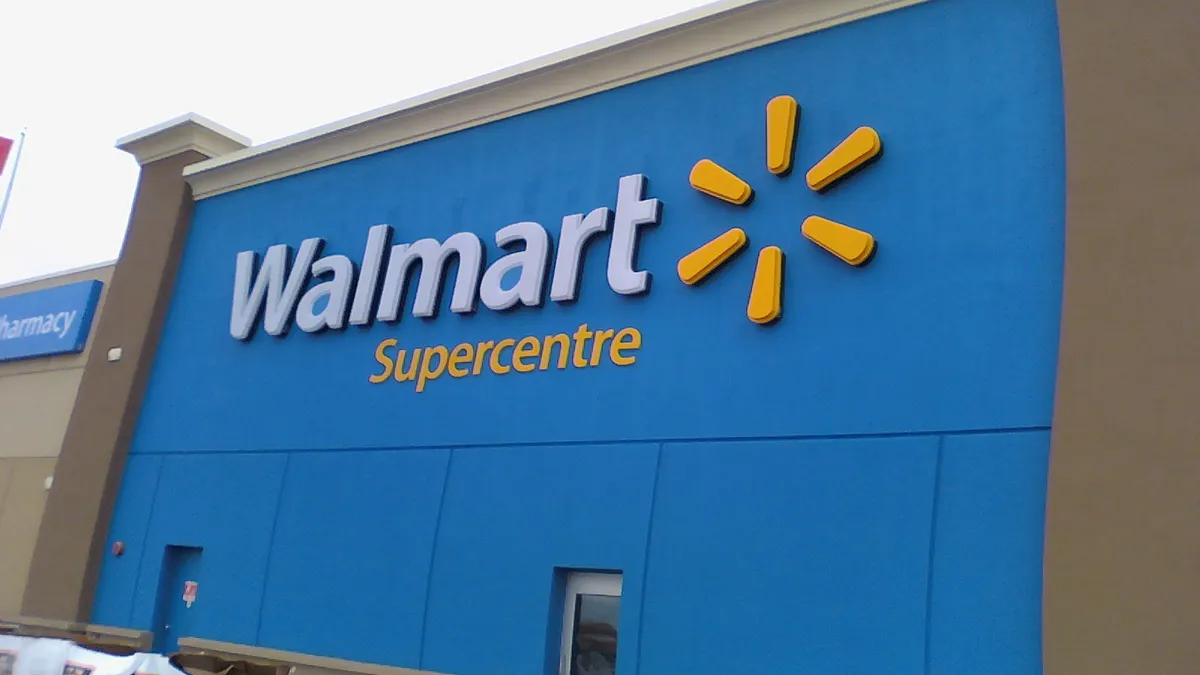Dive Brief:
- Walmart on Thursday announced a goal to cut 50 million metric tons of greenhouse gas emissions from its China value chain by 2030.
- The goal will build on existing initiatives as part of the retailer's Project Gigaton, which seeks to cut 1 billion tons of emissions by 2030.
- The latest announcement provides a roadmap to meet that goal, by working closely with suppliers and the Chinese government and reforming Walmart's own operations.
Dive Insight:
Project Gigaton, for Walmart, is more than a goal — it's a toolkit to use and a roadmap to follow, so the retailer's suppliers and stores may more easily achieve sustainable operations.
In the year since the project's launch, more than 400 suppliers worldwide have joined Project Gigaton, according to a press release. Joining is simple: Walmart just asks its partners to submit a goal in one of various areas — energy, waste, packaging, agriculture, deforestation and product use — and report on progress each year. In exchange, the retailer provides practical guidance in its sustainability hub and offers recognition opportunities.
The voluntary model is popular, but now, Walmart is taking another step to ensure success by creating a country-specific roadmap, with clear targets and initiatives specific to Chinese business. The retailer's initiatives are a way to ensure its own suppliers and operations are meeting both consumer and Chinese emissions standards.
The specific commitments include:
- Enroll the top 100 suppliers in China to Project Gigaton
- Reach an additional 25% reduction in the carbon intensity of Walmart's operations by 2025
- Invest in clean renewable energy, such as wind or solar
- Extend existing programs, like the Factory Energy Efficiency Program and initiatives to retrofit lighting at Walmart stores
In the goal announcement, Walmart noted the project will complement China's goal of reducing energy intensity by 15% in 2020. The retailer also said it would be among the first to join the country's new Green Building Certification Program for Hypermarkets, and work with the Ministry of Commerce to develop Green Packaging Standards for the logistics industry in the company.
The retailer's country-specific roadmap to Project Gigaton is a way to achieve all these goals, at once. Walmart executives posit the new initiatives as a win-win-win for suppliers, Walmart and China — and in fact, the world.
"Integrating more sustainable practices into our operations, resource management and sourcing efforts can spur technological innovation, inspire brand loyalty and increase associate engagement,” said Wern-Yuen Tan, president and CEO of Walmart China in a statement.
"We believe that business can accelerate environmental progress while delivering economic growth," said Walmart president and CEO Doug McMillon in a speech announcing the initiative. "That’s why we’re committed to taking a shared value approach to our work in China and around the world.”













